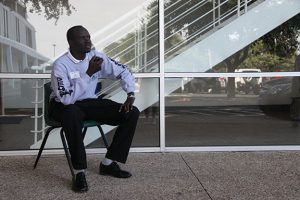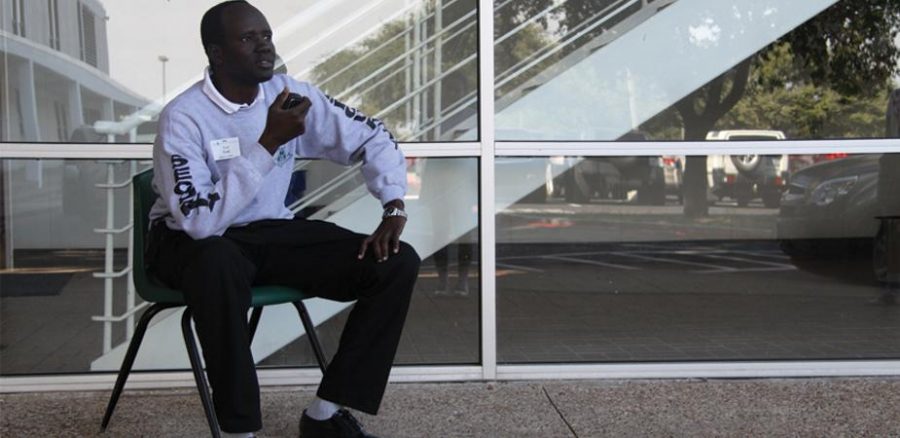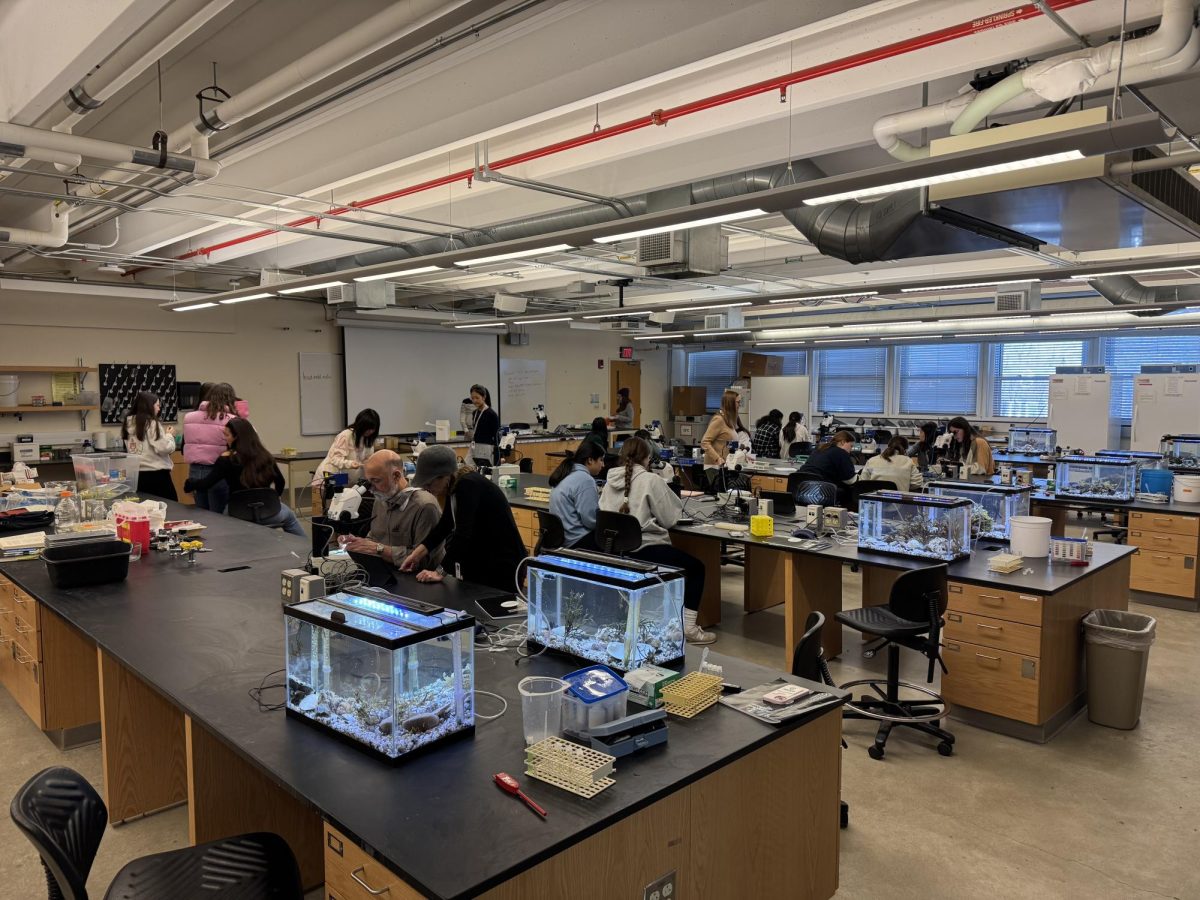
[nggallery id=46]
Hockaday’s new security officer Gai Alier Gai does not know his birthday. He has not seen his parents in over 25 years. And he has only flown on a plane once, a trip that changed his life entirely.
Gai, one of the Lost Boys of Sudan, fled from his home country of South Sudan in 1987, lived in a refugee camp in Ethiopia for eight years, then moved to Kenya before heading to Dallas in 2001 with aid from the United States Government.
Gai joined the Hockaday security force this fall after learning about the opening from Middle School math teacher Jim Wohlgehagen.
Wohlgehagen met Gai in 2007, when Gai married Nyanwuor Deng Duop, a Lost Girl of Sudan. Wohlgehagen had been working with Nyanwuor, her three brothers and her mother since 2005. He came in contact with the family through the Catholic Charities organization.
“They called around to all the Catholic churches in the area and my church chose us because my wife and I both worked as Peace Corps volunteers in South Africa,” Wohlgehagen said.
Gai and his wife’s family now refer to the Wohlgehagen’s as their “American Parents” because they taught the refugees how to use appliances, shop for groceries, clean and adjust to the culture shock of moving to the United States.
Even though Gai works and studies constantly in hopes of securing a better future for his two children, a 4-year-old son and 2-year-old daughter, he said he never forgets his family back home. Gai sends part of every paycheck to his family in South Sudan and hopes to return home and provide essential materials as well as an education to his family and friends.
“The experiences I’ve gained in the U.S.A. would make a lot of difference,” Gai said. “When I left home, I did not know how to read, write or speak English. If I go back now, I can tell them this is a civilized world; this is how you need to do things.”
South Sudan, Gai’s war torn home country, has lived amidst war since the ‘80s. History teacher Tracy Walder said the dispute started between the Muslims, in the north of former Sudan, and the Christians, in the south. Over two million Sudanese have been killed during this war.
“The Muslims needed child soldiers so they were kidnapping young men, sometimes young women, and using them and making them fight for the Muslim army against the Christians,” said Walder.
The “Lost Boys” are the thousands of children driven from their homes when the Muslims attacked their villages during the ‘80s and ‘90s. Most Lost Boys were 7-14-years-old at the time.
After escaping from their burning villages, the group of children walked thousands of miles to refugee camps in Ethiopia. According to Gai, over half of the Lost Boys were lost along the way due to starvation, dehydration, homesickness, disease, attack by wild animals and lack of medical care.
“It was a very horrible situation,” Gai said. “You have to walk thousands of miles in your bare feet, no shoes, no car, no plane, no food, no water, no clothes. It was very miserable.”
In 1991, the Lost Boys were forced to move to the Kakuma refugee camp in Kenya where they lived for 10 years. They then moved to the United States with help from the US Government in 2001.
Although he received no education while living in South Sudan, Gai attended school at the Kakuma refugee camp and graduated from Richland College of the Dallas Community College District in May 2011. He said he hopes to attend University of Texas at Dallas in the spring.
Gai said that moving to the United States, and working at an all-girls school in particular, has taught him the importance of education, especially for women.
The largest difference Duop sees between Africa and the United States is the greater freedoms offered to women.
“Now I drive the car, I can do what I need to do by my own without intimidation from the men,” she said. “Here in the U.S.A., women are treated the same as men.”
Gai hopes that Hockaday girls can contribute to improving the condition of African girls and offered advice learned from his past experiences.
Most African families do not educate their daughters, because they “only see them as property,” Gai said. Daughters are valued based on the dowries they can secure in marriage.
He said he dreams of traveling with Hockaday girls to South Sudan to show African girls how much women are capable of doing.
“I would be so happy if there was a way for students in Hockaday to go with me to help the area,” he said. “This would give girls the opportunity like you have here. They are suffering over there, and they have no education at all.”
“What you can learn from me is not to think small, think big. Think too big. People outside your country are suffering; think of them,” Gai said. “Help yourself by helping people in the other worlds. Explore more. Learn more about people suffering in other countries.”
– Megan Porter
with additional reporting by Mary Clare Beytagh









